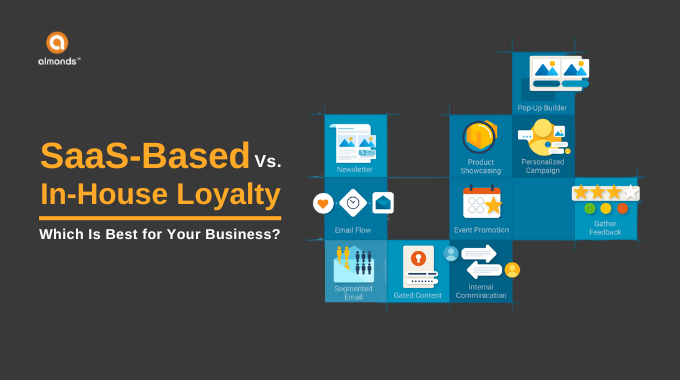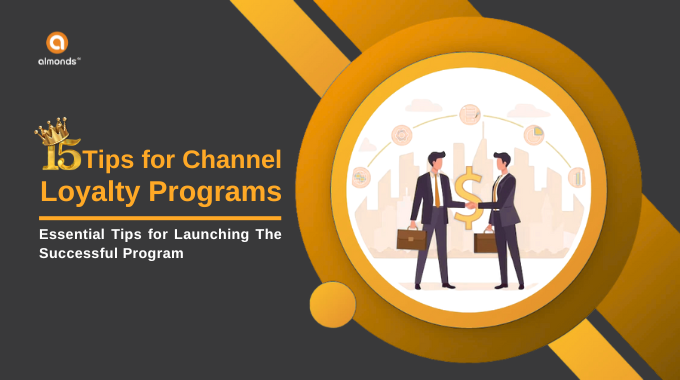B2B loyalty programs are under constant scrutiny over their effectiveness as they are in the B2C world. Let’s put it on the rest for once at all.
Loyalty programs are an effective tool used by businesses to retain customers and increase brand loyalty. Yet, there are many B2B channel partners who feel cheated by loyalty programs, and in this blog post, we will explore why this is the case.
Let’s start with the definition of B2B channel partners. Shall we?
Channel partners are businesses that work with a company to distribute their products. This can include wholesalers, distributors, and retailers, among others. The relationship between a company or supplier and their channel partners is a crucial one, and building loyalty is important for long-term success.
Yet, just having a loyalty program is not enough. Loyalty programs can have some hiccups. These can impact the relationship between manufacturers and their channel partners. Some of these hiccups are as follows:
- Tangible Rewards
The key reason why B2B channel partners may feel cheated by loyalty programs is that they often require a lot of effort to participate in. Generally, loyalty programs target individual consumers, with rewards such as discounts or free products offered for repeat purchases. However, in a B2B context, the rewards may not be as tangible, and the effort required to earn them may be much greater.
- Hectic Terms and Conditions
A company might offer a loyalty program to their distributors, with rewards such as increased commission rates or access to exclusive products. However, in order to earn these rewards, the channel partners may need to meet strict sales targets or invest in marketing initiatives that they may not have the resources for. This can lead to frustration and a feeling of being cheated, particularly if the rewards do not seem commensurate with the effort required.
- Best Product is Indispensable
Another issue that channel partners may have with B2B loyalty programs is that they can be seen as a substitute for good customer service. In other words, if a company is not providing high-quality products and services, then offering a loyalty program may be seen as a way of “buying off” their channel partners rather than addressing the underlying issues.
For example, if a supplier is consistently delivering products late or with quality issues, a loyalty program that offers discounts or rewards may not be enough to address the root cause of the problem. Instead, the supplier should focus on improving their processes and addressing the issues that are causing frustration for their channel partners.
- Difficult to Analyze and Track
Another challenge with B2B loyalty program platform is that they can be difficult to track and measure. Unlike B2C, B2B distribution-led sales cycle often takes much longer time, and it can be difficult to attribute a sale to a specific channel partner or loyalty program.
This can make it challenging for companies to evaluate the effectiveness of their loyalty programs and adjust as needed.
Due to the above reasons, the feeling of being cheated among channel partners can increase, who feel that their efforts are not being adequately recognized or rewarded. So, what can manufacturers and suppliers do to ensure that their B2B channel partners do not feel cheated by their loyalty programs? Here are a few tips:
- Make the Rewards Clear and Achievable:
Be transparent about what rewards are available and what channel partners need to do to earn them. Avoid setting overly strict targets that may be difficult to achieve, and make sure that the rewards are commensurate with the effort required.
| “According to the 2019 Loyalty Barometer Report by HelloWorld, from a rewards perspective;
- 77% of consumers enjoy free products;
- 75% prefer discounts and offers;
- 66% would like to get free samples;
- 57% favor free services ;
- 41% like chances to win prizes.|
- Focus on Building Strong Relationships:
Loyalty is not just about rewards – it is also about building strong relationships based on trust and mutual benefit. Make sure that you are providing high-quality products and services, and work with your channel partners to identify areas where you can provide additional support or resources.
- Measure and Evaluate the Success of Your Loyalty Program:
Track your program’s performance and use data analytics to understand what is working well and what needs improvement. Use this information to adjust and ensure that the program is achieving its intended goals.
- Provide Training and Support:
If your loyalty program requires a significant amount of effort from your channel partners, provide training and support to help them achieve their goals. This can include marketing resources, sales training, and other tools that can help them be successful.
- Communicate Regularly:
Keep your channel partners informed about the program, including updates on rewards and progress towards targets. Regular communication can help build trust and engagement and ensure that your channel partners feel valued and supported.
- Conclusion
B2B loyalty program platforms can be effective tools for building strong relationships with channel partners, they can also be challenging to implement successfully. To ensure that your channel partners do not feel cheated by your loyalty program, it is important to be transparent about rewards, focus on building strong relationships, measure and evaluate program performance, provide training and support, and communicate regularly. With these steps, you can build a successful loyalty program that benefits both your business and your channel partners.







